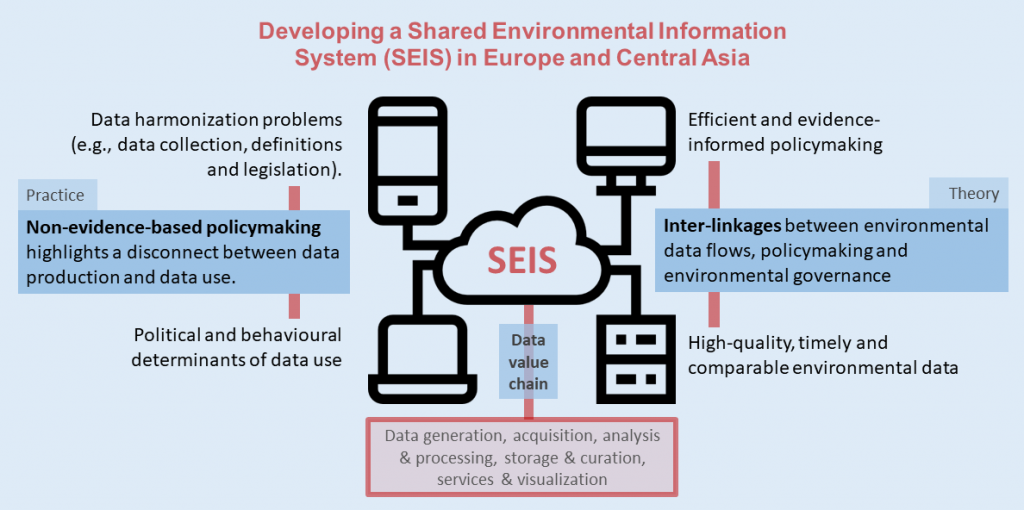Is sharing truly caring? Environmental data value chains and policymaking in Europe and Central Asia
Highlights
- The Shared Environmental Information System (SEIS) aim to expand the access to environmental data.
- SEIS has had a significant and positive impact on the production and harmonisation of environmental indicators.
- Data harmonization problems (e.g., data collection, definitions, and legislation) remain throughout the pan-European region.
- Non-evidence-based policymaking highlight a disconnect between data production and data use.
- Need to improve our understanding of the political and behavioural determinants of data use.
Access to high-quality, timely and comparable data is a prerequisite for any effective decision-making process and having such data available for the environment is absolutely fundamental to efficient and evidence-based policymaking. This article reviews the establishment of a Shared Environmental Information System (SEIS) in Europe and Central Asia to improve our understanding of how environmental data value chains are being employed to produce, share and use reliable data on the environment and whether this data is used in policymaking. Three sources of data are utilised to analyse whether relevant environmental data and information are being drawn upon by policymakers, namely, the 2019 SEIS mid-term review, SEIS Factsheets and SEIS Gap Analysis Reports.

The results reveal that the pan-European region still faces significant data harmonisation problems, owing in part to differences in types and methods of data collection, data definitions and legislation. Whilst problems in some individual country’s participation have persisted since the launch of the SEIS initiative in the pan-European region, the development and successful piloting of the SEIS self-assessment framework is considered as evidence of positive progress. However, it remains difficult to adequately assess to what extent the data flows covered by this study impact on policymaking, nevertheless, the analysis serves to highlight the inter-linkages between environmental data flows, policymakers and environmental governance. In practical terms, the paper demonstrate a disconnect between data production and data use in policymaking and emphasises the need to both improve our understanding of the political determinants of data use and to further investigate how the uptake of environmental data and information can be facilitated in policymaking.